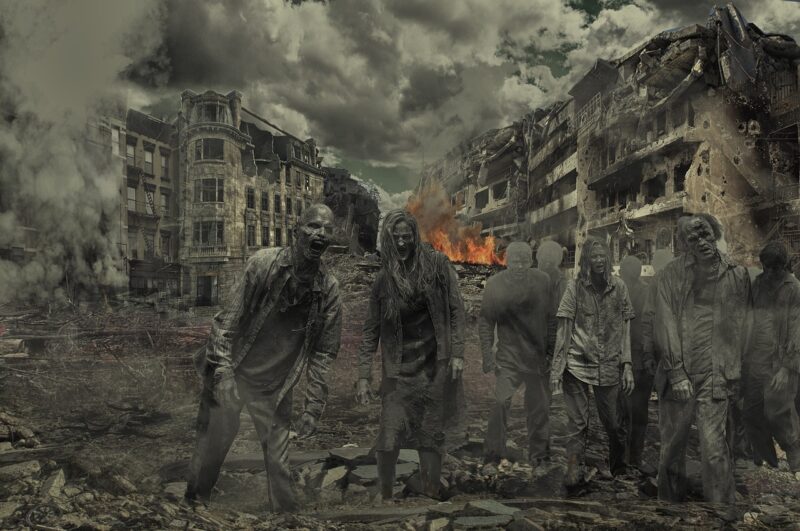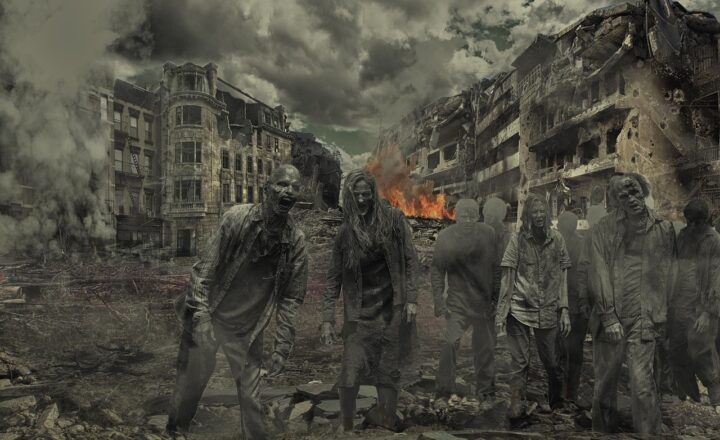How ‘The Walking Dead’ Redefined the Zombie Genre for Modern Audiences
November 18, 2024

The zombie genre has undergone a significant transformation over the years, transitioning from horror classics to a cultural phenomenon that engages audiences in ways we never thought possible. At the forefront of this metamorphosis is the critically acclaimed television series, ‘The Walking Dead’. Since its premiere in 2010, this show has redefined the zombie apocalypse narrative, adding layers of complexity to characters, themes, and the genre itself. In this article, we will explore how ‘The Walking Dead’ reshaped the zombie genre for modern audiences, cementing its place in popular culture.
1. The Shift from Horror to Character-Driven Drama
Unlike traditional zombie films that focused largely on the horror aspect, ‘The Walking Dead’ made a strategic move towards character-driven storytelling. The series dives deep into the psyche of its characters, exploring their moral dilemmas, relationships, and struggles for survival in a post-apocalyptic world.
– **Character Complexity:** Each character is multi-dimensional, reflecting real human responses to trauma and despair. For example, Rick Grimes, the main protagonist, transforms from a lawman into a leader struggling with the ethics of survival. This evolution keeps viewers emotionally invested, setting it apart from typical horror flicks where characters often serve as mere fodder for zombies.
– **Moral Ambiguity:** The show depicts moral dilemmas that question humanity’s core values. Characters face tough choices that blur the lines between right and wrong, making it difficult for viewers to definitively label them as heroes or villains. This complexity engages audiences on a deeper level, prompting discussions about ethics and survival.
2. A Social Commentary on Human Nature
Beyond the gruesome imagery and suspense, ‘The Walking Dead’ acts as a social commentary, reflecting contemporary societal fears and anxieties. The series transcends the zombie apocalypse and focuses on essential issues that resonate with modern audiences, such as:
– **Societal Collapse:** The show explores how society breaks down under pressure, showcasing the fragility of civilization. Issues like survivalism, governance, and the morality of leadership come to the forefront, making audiences reflect on their own societal structures.
– **Human Relationships:** ‘The Walking Dead’ highlights the complexities of human relationships during crises. The connections formed in adversity are both beautiful and heartbreaking, showcasing themes of love, betrayal, loyalty, and loss. The dynamics between the characters are often as terrifying as the zombies they face.
– **Fear of the Unknown:** With each new season introducing new groups and threats, the fear of the unknown becomes a central theme. This concept resonates with viewers, who can see parallels in their own lives, thus maintaining a gripping tension throughout the series.
3. The Redefinition of Zombies
The portrayal of zombies in ‘The Walking Dead’ is another critical aspect that sets it apart. Rather than focusing solely on the horror of being devoured by the undead, the series invites viewers to consider zombies as a reflection of humanity’s worst fears:
– **Symbolism of Zombies:** Zombies in the show represent not just physical threats but also the emotional and moral decay of humanity in extreme situations. They are a constant reminder of what people might become without societal constraints, serving as a powerful metaphor for loss of humanity.
– **Looking at the Zombie’s Backstory:** The series explores the transformation of people into zombies, highlighting their identities and relationships before they became monsters. This approach allows for a layer of tragedy, underscoring the loss of humanity and the emotional resonance that accompanies it.
– **Integration into the Plot:** The zombies, or “walkers” as they are referred to in the show, are not the sole focus of the narrative. Instead, they are a backdrop that enhances character development and thematic depth, contrasting with films that prioritize action over emotional storytelling.
4. Popularizing the Zombie Genre for a New Generation
‘The Walking Dead’ has spearheaded a renaissance in the zombie genre, influencing countless adaptations in other media forms. Its success paved the way for new interpretations and explorations of zombie narratives:
– **Influence on Cinema and TV:** The series inspired a wave of movies and shows, often mixing genres such as romance, drama, and comedy with zombie elements. Examples include ‘Zombieland’ and ‘Santa Clarita Diet’, showcasing the versatility of zombies in modern storytelling.
– **Video Games and Comics:** The popularity of ‘The Walking Dead’ has also influenced video games and comic book adaptations, further blending different genres and increasing the overall appeal. The action and survival aspects of these adaptations are complemented by the narrative depth established by the source material.
– **Cult Following and Fan Engagement:** The show has cultivated a dedicated fanbase, spawning discussions and theories, conventions, merchandise, and even themed attractions. The community aspect becomes an essential factor, as audiences engage with the content on multiple levels and forms, enriching the experience.
5. Conclusion: An Enduring Legacy
As ‘The Walking Dead’ continues into its later seasons, it remains evident that the series has not only redefined the zombie genre but has also influenced how we perceive apocalyptic narratives as a whole. With its focus on character development, social commentary, and the emotional weight of survival, the show invites audiences to reflect on our humanity amidst chaos.
In a world increasingly characterized by uncertainty, ‘The Walking Dead’ resonates as a powerful exploration of survival and the inherent complexities of human nature. Its legacy will likely shape the future of the zombie genre for years to come, ensuring that the ‘The Walking Dead’ isn’t just a show about zombies, but a compelling exploration of what it means to be human.
Ultimately, ‘The Walking Dead’ has transformed the landscape of horror television, paving the way for narratives that prioritize depth, character, and societal reflection. It stands as a testament to the genre’s potential to provoke thought and conversation, forever redefining our understanding of the zombie apocalypse.






